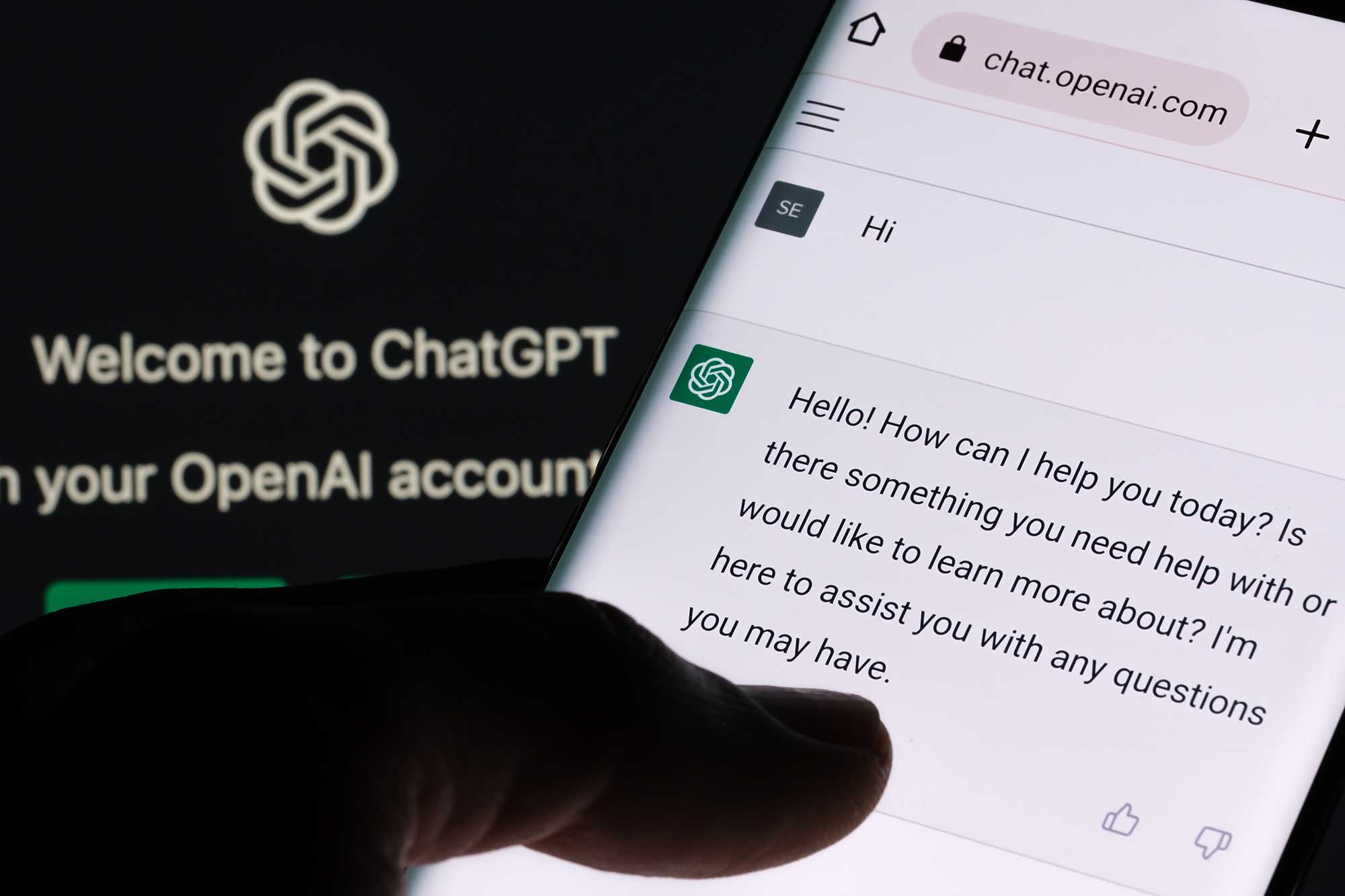Trends / 28-02-2023
We’re talking about ChatGPT. Since the platform went online in November, however, the posts of self-appointed gurus and pseudo-influencers on social media have unfortunately been full of how Chat GPT will rock the economy. The problem many have with this: It sounds suspiciously like when Clubhouse revolutionized digital communications. Or what was it back then?

Artificial intelligence has one problem: making money.
Is ChatGPT a revolution in AI or just the next annoying Internet hype? Probably something in between. Because ChatGPT does have an incredible amount of potential. Unfortunately, there is a small problem that many other artificial intelligences also have: There is currently hardly any money to be made with it.
This doesn’t mean the commercials between the individual chat requests or the professional version, which works a bit faster than the free version with a “lifetime subscription” for 64.99 euros. That’s all good, but it’s not an approach that could revolutionize an industry. Just like Amazon turned the retail industry upside down back then.
The BigTechs are struggling
What’s more, many current BigTech companies have a big problem with artificial intelligence, as it runs counter to their business model in some cases. Today’s Amazon has such a bewilderingly wide range of items that it’s better to know in advance exactly what you want to buy. And Google parent Alphabet earns its money by ensuring that the seventh shampoo manufacturer also uses ads to ensure that its product is shown on page one along with six other shampoos.
However, an AI only adds value if it precisely and objectively determines which shampoo is the most suitable for us and does not show us the other products in the first place. So if Google were to switch to an AI, six-sevenths of its advertising revenue would immediately be lost (in this example).
In the real estate industry, “AI-washing” prevails – yet.
The same is true for artificial intelligence in the real estate industry. Of course, a company with technology similar to Chat GPT could replace a service phone or two in property management. And optical character recognition, which distinguishes a rental agreement from an energy certificate, saves us annoying sorting work. It’s no wonder that we at Mähren AG also rely on many digital helpers, be they AIs or simply good digital tools. The advantage is clear: We have more time for the essentials and can concentrate entirely on acquiring new objects and making existing ones better.
In marketing, too, it could well be that standard texts such as exposés or pure announcements could soon be taken over by ChatGPT or an “AI colleague”. However, the technology has not yet reached the point where an AI could deceptively imitate our CEO Jakob Mähren – as a vacation replacement, so to speak.

In 2030, the real estate world will probably look different
But all the “AI-washing” and the fact that no disruption has taken place so far says nothing about the future. AIs evolve very slowly at first, but at an exponential rate. Even ChatGPT, when asked when AIs will truly lead to economic disruption, responds with: not until 2030. But once it does, the move to real value creation and return on investment may happen faster than the real estate industry would like.
For example, AI-based location scoring is now part of some investment managers’ decision-making tools. However, it is often said that AI could only ever support, but never replace, a human decision maker. Even ChatGPT diplomatically asserts that it itself or an “AI colleague” will be a pure support to flesh-and-blood managers. But can we be so sure? Not necessarily. Just as autonomous driving will eventually no longer require a human behind the wheel, it may very well be that in ten years an AI will no longer need a human to put together the best possible real estate portfolio. The only thing humans are absolutely necessary for: They need to verify that the properties actually match what the AI has as a data set – and that the program has also worked correctly.
The point is: No one can predict how AIs will really impact our economy and all of our business models. Even we at MÄHREN AG can’t say which tasks will happen fully automatically in 2035 and how new work and digitization will actually go hand in hand in the long term.
More time for the really important questions
So, what can we say? First, that artificial intelligences in the real estate industry are just a small taste of what may come – just like ChatGPT. Second, however, we know full well that any AI can only be as good as the input it receives. An AI can only get creative if there are human creative masterminds. Otherwise, the old IT adage “shit in, shit out!” applies.
So one possible variation would be for AI to take over the commercial side of the real estate business, and for us humans to spend more time and creativity on actionable solutions to the questions of how to solve the housing shortage in cities, how to get to socially sustainable new forms of housing, or how to rehabilitate stock so that vacant land can be returned to the housing market. Such an upheaval would certainly be fraught with challenges for the industry. However, it can only be good for society and urban development as a whole.

